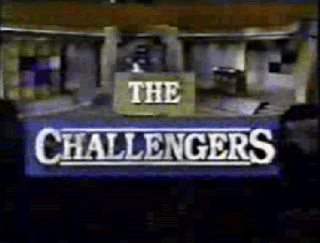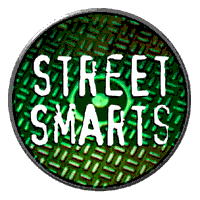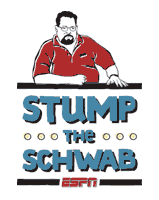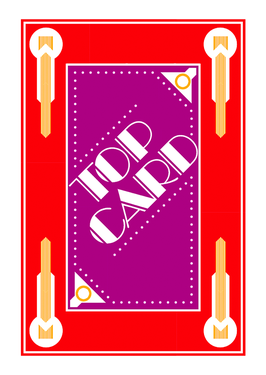Related Research Articles

Win Ben Stein's Money is an American television game show created by Al Burton and Donnie Brainard that aired first-run episodes from July 28, 1997 to January 31, 2003, on Comedy Central. The show featured three contestants who competed to answer general knowledge questions in order to win the grand prize of $5,000 from the show's host, Ben Stein. In the second half of each episode, Stein participated as a "common" contestant in order to defend his money from being taken by his competitors. The show won six Daytime Emmy awards, with Stein and Jimmy Kimmel, the show's original co-host, sharing the Outstanding Game Show Host award in 1999. The show was produced by Valleycrest Productions, Ltd. and distributed by Buena Vista Television, both subsidiaries of The Walt Disney Company.
Remote Control is an American TV game show that ran on MTV for five seasons from 1987 until 1990. It was MTV's first original non-musical program and first game show. A concurrent syndicated version of the series ran during the 1989-90 season and was distributed by Viacom. Three contestants answered trivia questions on movies, music, and television, many of which were presented in skit format.
The Joker's Wild is an American television game show that aired at different times between 1972 and 2019. In the show, contestants answer questions based on categories determined randomly by a mechanism resembling a slot machine. The show's title refers to the game's slot-machine mechanism also having jokers.

Beat the Geeks is an American television game show that aired on Comedy Central from 2001 to 2002. The show was rerun on The Comedy Network in Canada.

The Challengers is an American game show that aired in syndication during the 1990-91 television season The series was created by Ron Greenberg and was based largely on his 1969 production, The Who, What, or Where Game. Dick Clark presided over the show with Don Morrow announcing. The Challengers was a joint production of Ron Greenberg Productions and Dick Clark Productions, with Buena Vista Television as distributor.

Street Smarts is an American game show that featured two in-studio contestants trying to predict the outcome of interviews of people who were found on the street. The show, which was hosted by Frank Nicotero, aired in syndication from 2000 to 2005. Nicotero would be on locale with the on the street contestants, virtually any and everywhere in the United States. The in studio gameplay however, was at G4 and TMZ, headquarters, Victory Studios, in Glendale, California.

Get the Picture is a children's game show that aired from March 18 to December 6, 1991, with repeats until March 13, 1993 on Nickelodeon. Hosted by Mike O'Malley, the show featured two teams answering questions and playing games for the opportunity to guess a hidden picture on a giant screen made up of 16 smaller screens. The show was recorded at Nickelodeon Studios in Universal Studios, Orlando, Florida. The program's theme music and game music was composed by Dan Vitco and Mark Schultz, and produced by Schultz. Its tagline is The Great Frame Game.

Stump the Schwab is an American game show that aired on ESPN2 and ESPN Classic from July 8, 2004 to September 29, 2006. The show featured three contestants trying to defeat Howie Schwab, ESPN's first statistician, in a sports trivia contest. Stuart Scott was the show's host. The show also appeared on Canada's The Score Television Network.

The Einstein Factor was an Australian television quiz show that was broadcast on ABC1. The show's host is comedian and broadcaster Peter Berner. It was first broadcast in 2004 and in 2009 the show commenced its sixth and final season, with the ABC announcing the program would not be renewed in 2010. The final episode aired on 22 November 2009. It was broadcast on Sunday nights at 6:30 pm from 2004 until 2009 & also on Tuesdays at 1:30pm on ABC. The Einstein Factor was created by Australian television producer, Barry O'Brien, and was produced by Sparkz with Ian Duncan and Shaun Levin as Executive Producers.

History IQ is a game show on The History Channel which premiered on October 2, 2000 and aired for two seasons. Marc Summers hosted and Harvey announced, reuniting the two from the Nickelodeon game show Double Dare. History IQ was produced by Glow in the Dark Productions.

The Big Showdown is an American game show that aired on the ABC television network from December 23, 1974 to July 4, 1975. Jim Peck hosted the program and Dan Daniel served as announcer.
Trivial Pursuit is an American game show that ran on The Family Channel from June 7, 1993, to December 30, 1994. Loosely based on the board game of the same name, it was hosted by Wink Martindale with Randy West announcing.

Top Card is a game show that aired on TNN and produced by Reid-Land Productions, replacing TNN's original game show Fandango. The show aired from April 3, 1989 to March 26, 1993 and was based on the card game Blackjack.
Fandango is a country music-themed quiz show which aired on The Nashville Network from March 8, 1983 to August 26, 1988, with reruns airing through March 31, 1989, when it was replaced by Top Card. Fandango was the first TV game show to air on TNN and was one of the longest-running game shows on a cable network.
Trashed is a television game show that ran on MTV from February 14 to July 23, 1994, with Chris Hardwick as host.

Wheel of Fortune is a British television game show based on the American show of the same name created by Merv Griffin. Contestants compete to solve word puzzles, similar to those used in Hangman, to win cash and prizes. The title refers to the show's giant carnival wheel that contestants spin throughout the course of the game to determine their cash and/or prizes.
The Diamond Head Game is an American game show that aired from January 6 to July 4, 1975 in five-day-a-week syndication. Borrowing its name from a long dormant volcano on the island of Oahu, the series was hosted by Bob Eubanks and assistant Jane Nelson, and is the only game show ever to have been taped entirely on location in Hawaii. Alan Thicke composed the theme music.
Turn It Up! is a musical game show that aired on MTV from June 30 to December 7, 1990. It was the second game show to be produced and broadcast on the network after Remote Control, produced by Albie Hecht, Alan Goodman, and Fred Seibert, of Chauncey Street Productions in New York City.
On the Spot is an American game show produced by and broadcast on KGW-TV in Portland, Oregon as a daily series from September 1984 to October 1988. Newscaster Larry Blackmar was host, while local disc-jockey Michael Bailey announced.
Download is an Australian children's game show which aired on the Nine Network from 2000 until 2002. Scott McRae hosted the show in 2000–2001; he was replaced by Nathan Lloyd in 2001–2002, while Emily Jade O'Keefe hosted the final season of the show. The co-host for the final season was Miss Bytes.
References
- ↑ Margaret Lyons. "10 Great (and Not-So-Great) Game Shows You Probably Forgot About - Idiot Savants (MTV, 1996–97)" . Retrieved 18 November 2017.